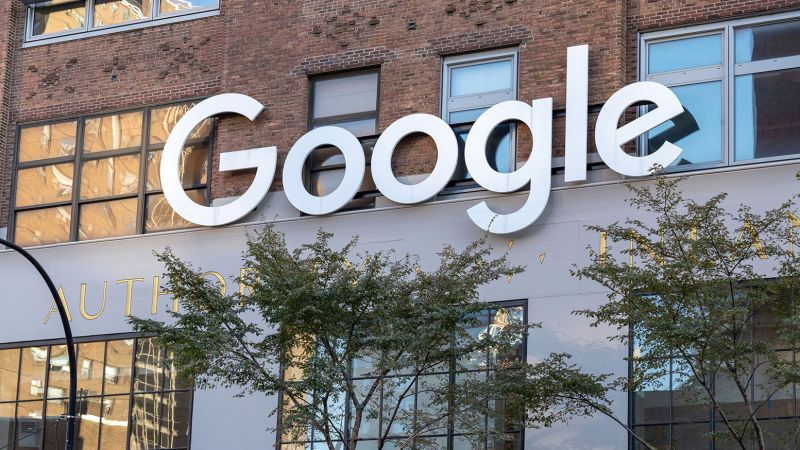

CNN
—
The Justice Department and eight states sued Google on Tuesday, accusing the company of harming competition with its dominance in the online advertising market and calling for it to be broken up.
The move marks the Biden administration’s first blockbuster antitrust case against a Big Tech company. The eight states joining the suit include California, Colorado, Connecticut, New Jersey, New York, Rhode Island, Tennessee and Virginia.
The fresh complaint significantly escalates the risks to Google emanating from Washington, where lawmakers and regulators have frequently raised concerns about the tech giant’s power but have so far failed to pass new legislation or regulations that might rein in the company or its peers.
For years, Google’s critics have claimed that the company’s extensive role in the ecosystem that enables advertisers to place ads, and for publishers to offer up digital ad space, represents a conflict of interest that Google has exploited anticompetitively.
In Tuesday’s complaint, a copy of which was viewed by CNN, the Justice Department alleged that Google actively and illegally maintained that dominance by engaging in a campaign to thwart competition. Google gobbled up rivals through anticompetitive mergers, the US government said, and bullied publishers and advertisers into using the company’s proprietary ad technology products.
As part of the lawsuit, the US government called for Google to be broken up and for the court to order the company to spin off at least its online advertising exchange and its ad server for publishers, if not more.
Google, the US government alleged, “has corrupted legitimate competition in the ad tech industry by engaging in a systematic campaign to seize control of the wide swath of high-tech tools used by publishers, advertisers, and brokers, to facilitate digital advertising. Having inserted itself into all aspects of the digital advertising marketplace, Google has used anticompetitive, exclusionary, and unlawful means to eliminate or severely diminish any threat to its dominance over digital advertising technologies.”
The suit was filed in the US District Court for the Eastern District of Virginia.
Tuesday’s suit marks the federal government’s second antitrust complaint against Google since 2020, when the Trump administration sued over Google’s alleged anticompetitive harms in search and search advertising. That case is still ongoing. Google has also been the target of antitrust litigation by state and private actors.
Google didn’t immediately respond to a request for comment.
Tuesday’s complaint also marks an opening salvo against Big Tech by DOJ’s antitrust chief, Jonathan Kanter. Kanter has spent months laying the groundwork for a broader offensive against the tech industry’s most dominant companies, reflecting commitments by President Joe Biden and others in the US government to hold powerful firms accountable. Under Kanter, Justice Department antitrust officials have pushed to bring more cases to trial as well as to prosecute cases involving unconventional legal theories.
In 2020, House lawmakers released a 450-page report finding that Google, along with Amazon, Apple and Facebook, hold “monopoly power” in key business segments. The report was the result of a 16-month investigation in which congressional staff reviewed corporate documents and interviewed the tech industry’s many customers and rivals. It concluded, among other things, that Google was uniquely positioned to benefit from its powerful role in the online ad industry.
“With a sizable share in the ad exchange market and the ad intermediary market, and as a leading supplier of ad space, Google simultaneously acts on behalf of publishers and advertisers, while also trading for itself,” the report said.
Third-party estimates suggest that Google and Facebook (now known as Meta) accounted for the majority of US digital ad revenues until about 2017, with Google taking about a third of the market. Since then, however, others including Amazon have begun encroaching on that business.
The US complaint echoes concerns that have prompted similar antitrust investigations in the United Kingdom and in the European Union.
